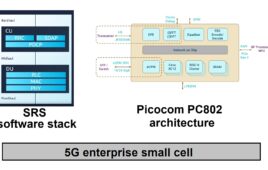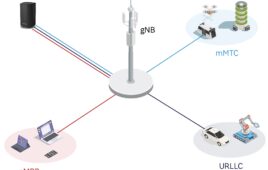European telecommunications company TeliaSonera announced Friday that it is teaming up with Swedish communications technology company Ericsson to launch 5G services to two European cities in 2018.
Under the partnership, the companies will make 5G services available to citizens in Stockholm, Sweden and Estonia’s capital city Tallinn in two years’ time. The effort, the companies said, will help them better evaluate how 5G will impact consumers, businesses and society as a whole.
“Stockholm and Tallinn are two of the most connected cities in the world and now we will take them to the next level,” said TeliaSoner CEO Johan Dennelind. “5G will create completely new innovations, ecosystems and great services to our customers. I can’t wait to see how Stockholm and Tallinn will embrace 5G.”
The companies said 5G will enable new applications, which may include “e-health with real time surveillance of patients and remote treatment; connected cars including critical communication between vehicles (warnings, support to self-driving cars, etc.) as well as better network performance in terms of capacity, coverage and power consumption.”
If successful, the 5G deployment would come two years ahead of the widely anticipated 2020 launch of commercial 5G networks. The launch would also precede the release of 3GPP’s 5G standards, which are expected to be revealed in 2018 to allow for a 2020 launch of standardized 5G.
But TeliaSonera and Ericsson’s efforts to launch 5G in an accelerated timeframe are no surprise. Over the past several months, companies have been heartily waving the 5G flag and announcing ambitious 5G launch deadlines.
In September, Verizon announced that it is currently building 5G “sandbox” test environments in Massachusetts and California and expects to begin conducting 5G field trials this year. Nokia followed up in mid-September with its announcement of a 2020 deadline for the first commercial 5G rollout in Europe.
Other companies, including Huawei, KT Telecom and NTT Docomo, have also announced 5G launch dates of 2018 (Huawei and KT) and 2020 (NTT Docomo).
The EU also announced it signed a partnership agreement with China to strengthen cooperation on 5G technology.



